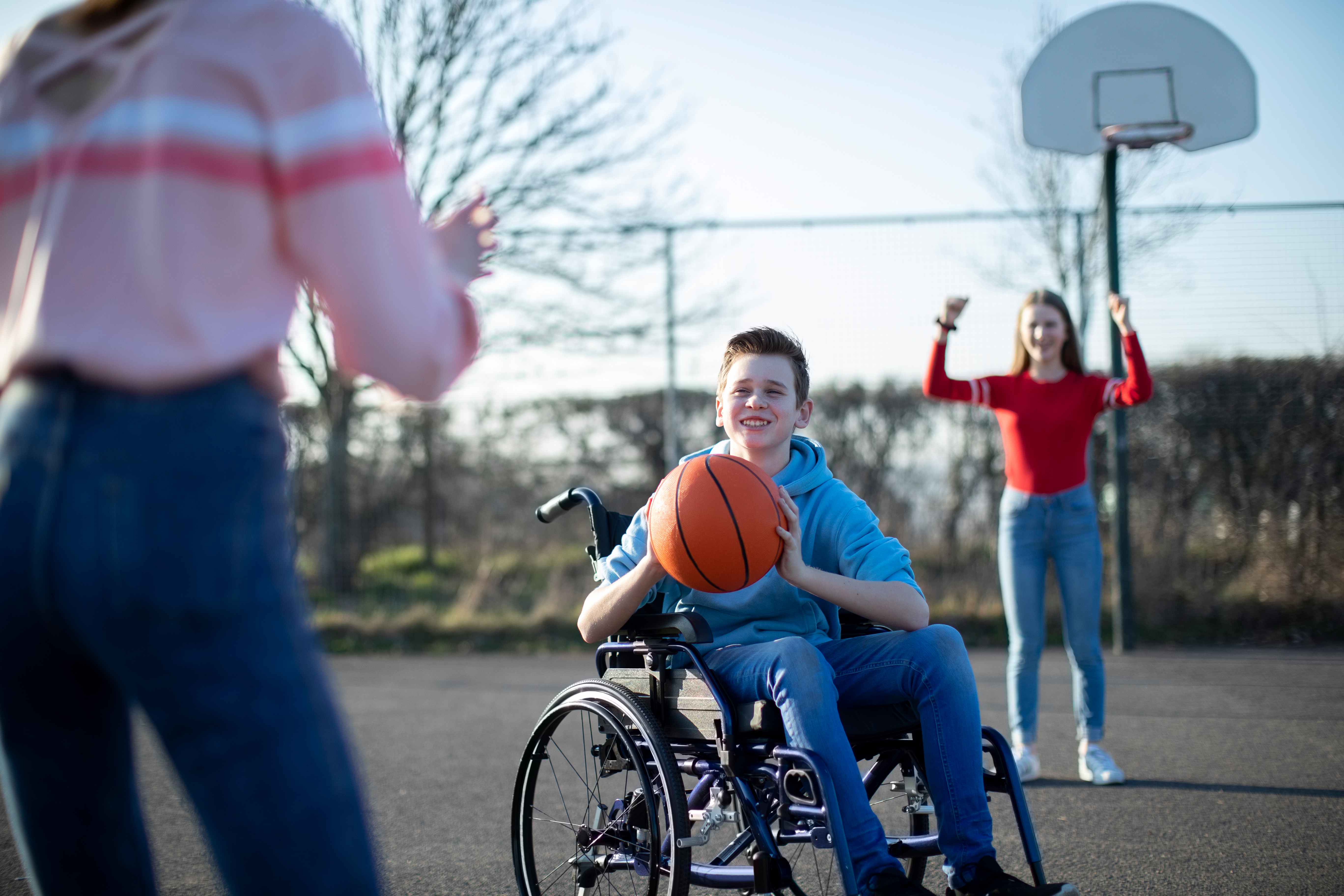Educators can play an important role
It’s important to understand the role body image, in particular body dissatisfaction, plays in a child or young person’s eating and exercise behaviours.
Evidence suggests the more dissatisfied a person feels about their weight, shape or size, the more likely they are to engage in harmful eating and exercise behaviours.
Behaviours such as restrictive dieting, binge eating, over-exercising or reduced activity levels, can place a child or young person at risk of developing disordered eating behaviours.
Children and young people are exposed to a high volume of dieting and exercise information through media and social media platforms, as well as from family, friends, educators and coaches. Weight and appearance-based bullying and teasing can have a lifelong impact on children and young people.
Promoting respectful interactions and encouraging healthy eating and exercise behaviours in all children and young people is key.
-
Foster healthy attitudes and behaviours
Learning communities can choose healthy eating programs that support positive body image as well as nutrition.
There is a range of healthy eating and nutrition programs available for school settings.
You can find some of them in the Be You Programs Directory. Ideally, programs support positive body image and healthy attitudes by:
· considering the Australian Government’s healthy eating guidelines
· using positive language when describing foods
· discouraging restrictive or fad dieting
· debunking inaccurate and unhelpful health messaging, and appearance ideals
· encouraging exercise and eating in moderation
· celebrating diversity in body shapes, size and weight
· having zero tolerance for weight and appearance-based bullying and teasing
· challenging appearance ideals (for example, the thin ideal, the muscular ideal)
· focusing on health and wellbeing rather than weight or weight loss
· actively and consistently promoting positive attitudes and behaviours towards eating and exercise in the school canteen, across sports programs, in family communications and community activities
· ensuring information and strategies are evidence-based and adopt a whole-school approach – for students, staff and families.
Programs should avoid:
· labelling foods as ‘good’ or ‘bad’, or ‘clean’ and ‘junk’
· shaming foods (that is, suggesting health issues are caused by a single food – for example, sugar)
· reinforcing weight stigma (that is, being overweight is ‘bad’)
· using fear, weight or appearance as motivators for change in eating habits or movement (that is, suggesting a student will gain weight if they eat a certain food, or they’ll be happier or healthier if they lose weight)
· weighing or measuring students.
-
Be a positive role model in your learning community
· Avoid talking about, or engaging in, restrictive and fad diets and be mindful of the language used to describe food and bodies.
· Participate in sports or non-competitive physical activity for wellbeing and fun.
· Celebrate body functionality over appearance.
· Avoid making comparisons between children's or young people’s bodies.
· Demonstrate that positive lifestyle behaviours - such as nutrition and physical activity - are for health and enjoyment, not weight management.
· Support, encourage and endorse help-seeking for concerns with food, eating and body image.
-
What can I do if I'm concerned about a child or young person?
If you have concerns about a child or young person’s eating and exercise behaviours, or general physical development, you can find out more in our Fact Sheet on an educator’s role in disordered eating.
Be You Professional Learning
Learn about noticing and supporting children and young people who might be showing signs of mental health issues in the Early Support domain.
-
References
Mental Health First Aid Australia, Eating Disorders: First Aid Guidelines. Melbourne: Mental Health First Aid, Australia 2008
Eat for Health – Australian Healthy Eating Guidelines 2017
National Eating Disorder Collaboration, Eating Disorder in Schools: Prevention, Early Identification and Response, 2nd edition, 2016
Mond, J., van den Berg, P., Boutelle, K., Hannan, P., & Neumark-Sztainer, D. (2011). Obesity, body dissatisfaction, and emotional well-being in early and late adolescence: Findings from the Project EAT study. Journal of Adolescent Health, 48, 373–378.
Nichols, T. E., Damiano, S. R., Gregg, K., Wertheim, E. H., & Paxton, S. J. (2018). Psychological predictors of body image attitudes and concerns in young children. Body Image, 27, 10-20.
Paxton, S.J. (2011). Public policy and prevention. In T. Cash & L. Smolak (Eds). Body image: A Handbook of Science, Practice and Prevention, 2nd Edition. New York: Guilford Press, Ch.52, pp.460-468.
Paxton, S.J. (2012). Preventing body image problems: Public policy approaches. In T. F. Cash (Ed). Encyclopedia of Body Image and Human Appearance. Oxford, UK: Elsevier/Academic Press, Ch 108, pp. 680-685.
Paxton, S.J. (2015). Social policy and prevention of body image and eating disorders. In L. Smolak and M.P. Levine (Eds). The Wiley-Blackwell Handbook of Eating Disorders, Vol 2, Chichester, UK: John Wiley & Sons. Ch. 48, pp.655 – 668.
Rodgers, R. F., Paxton, S. J., & McLean, S. A. (2014). A biopsychosocial model of body image concerns and disordered eating in early adolescent girls. Journal of Youth and Adolescence, 43, 814-823.
Rodgers, R.F. McLean, S.A. & Paxton, S.J. (2015). Longitudinal relationships among internalization of the media ideal, peer social comparison, and body dissatisfaction: implications for the Tripartite Influence Model. Developmental Psychology, 51, 706-713.
Trottier, K., McFarlane, T. & Olmsted, M. (2013). A test of the weight-based self-evaluation schema in eating disorders: Understanding the link between self-esteem, weight-based self-evaluation, and body dissatisfaction. Cognitive Therapy and Research, 37, 122 – 126.
-
External links
Butterfly Foundation's National Helpline
Eat for Health – Australian Dietary Guidelines
headspace – Food for Thought
